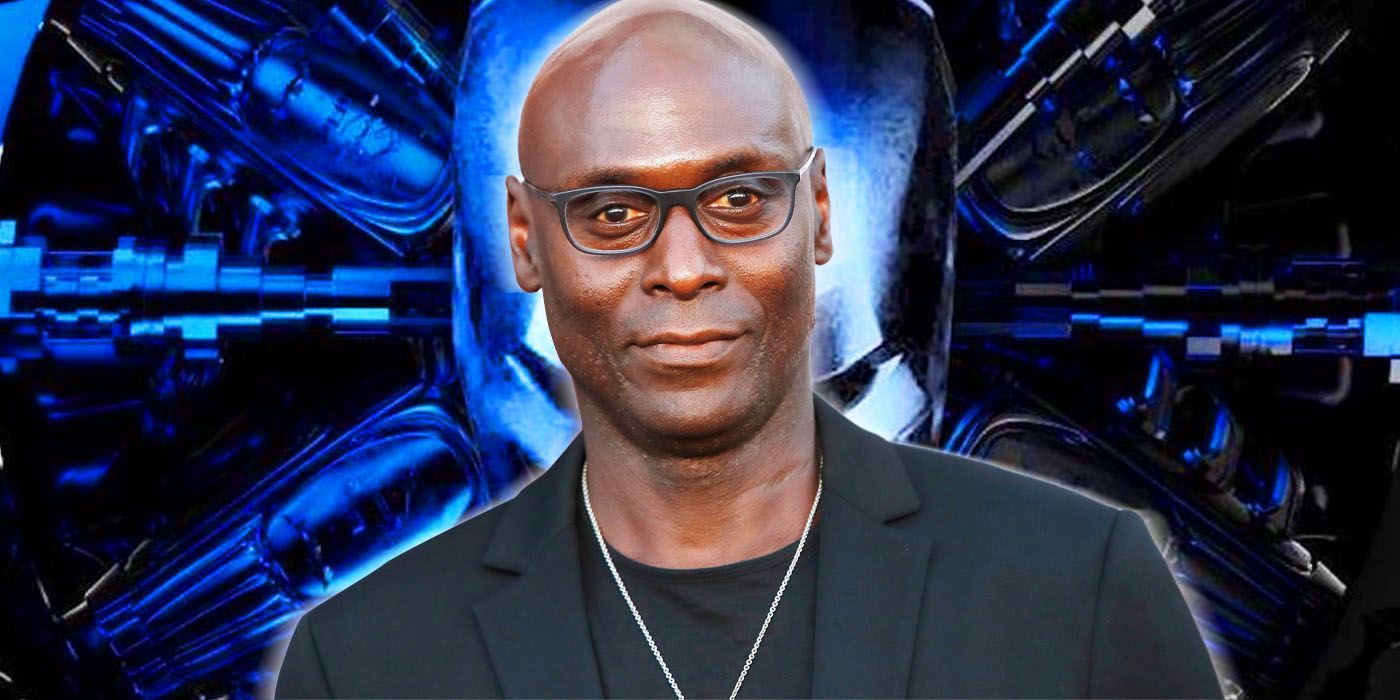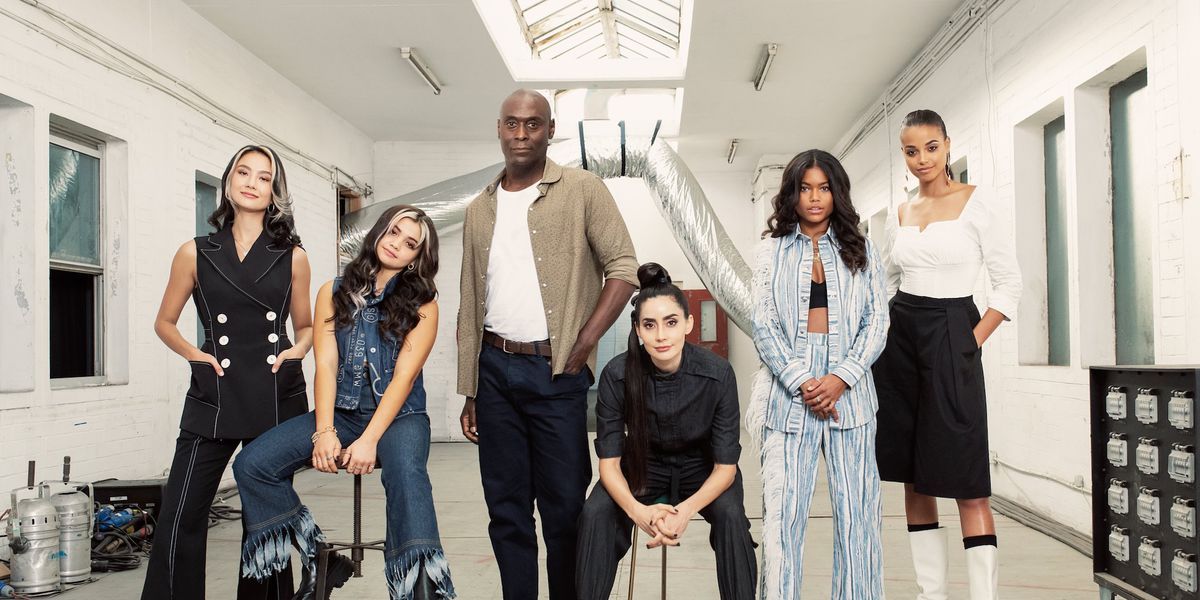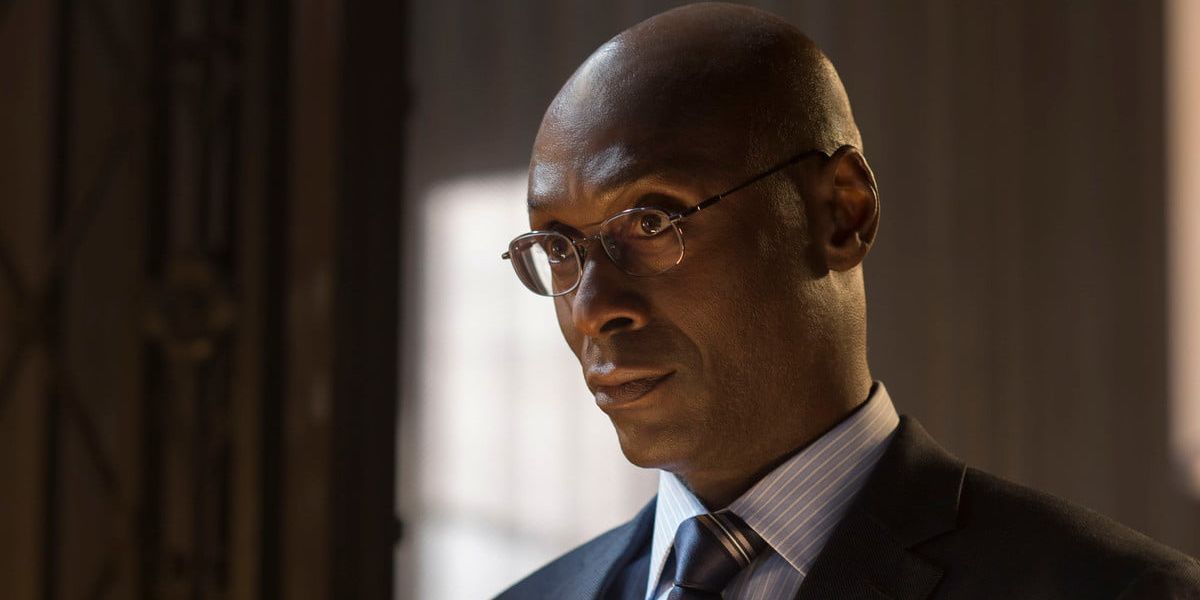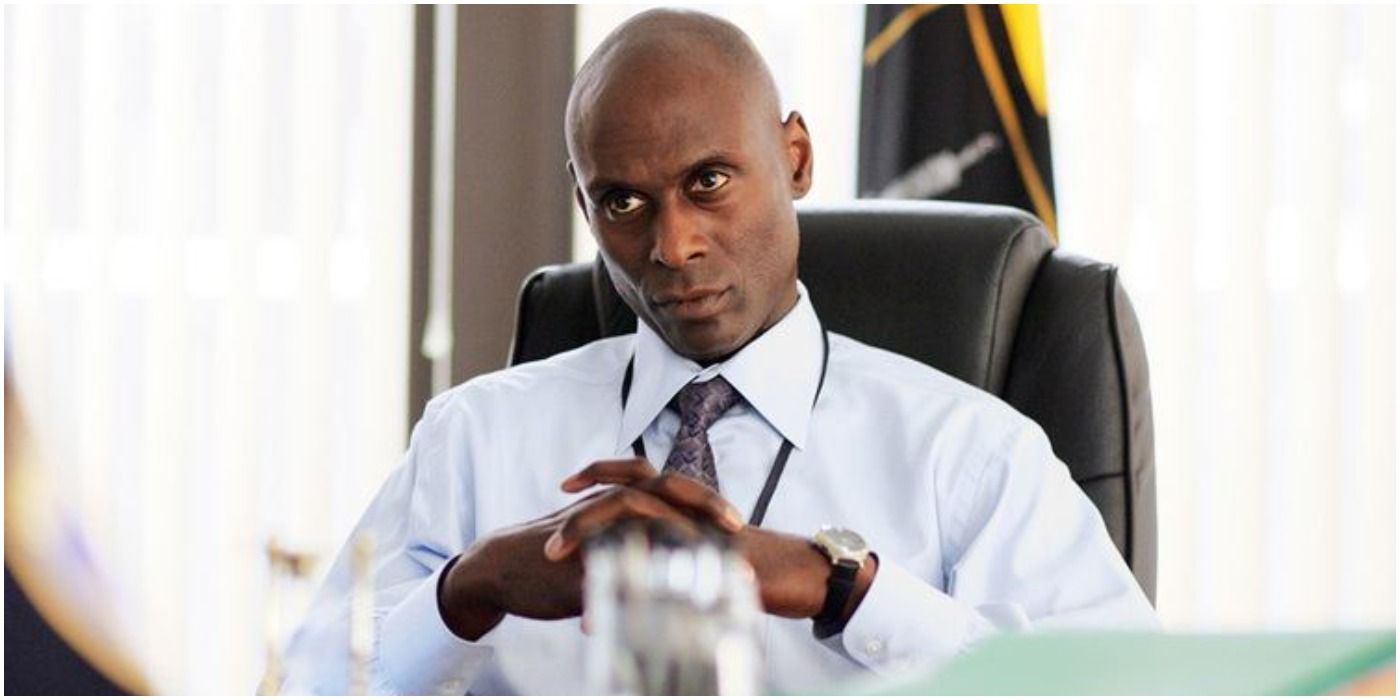One of the most prolific actors in the business today, Lance Reddick has steadily built up a career of acting in television, film, video games, and more following a universally acclaimed role on The Wire. Among Reddick’s more recognizable roles since then are the wry hotel manager Charon in the John Wick films, Deputy Chief Irvin Irving on Bosch, and Commander Zavala in both Horizon games. Next up, Reddick portrays Thomas Wayne in the all-star Spotify audio drama Batman: Unburied and the sinister Albert Wesker in the upcoming live-action Resident Evil series on Netflix.
In an exclusive interview with CBR, Reddick shared his longtime love of Batman and the joys of getting to play in the DC Universe. He also hinted at what audiences can expect from his portrayal of Albert Wesker in the upcoming Resident Evil television series and reflected on the enduring, celebrated legacy of The Wire.
CBR: Lance, while you’ve done plenty of animated and video game voiceover performances, how was it getting more into the audio drama space as Thomas Wayne in Batman: Unburied?
Lance Reddick: It’s really because it was Batman. I wish I could give you a cooler answer than that, but I don’t have one. To play Thomas Wayne, I just thought it was cool. For the longest time, Batman was my favorite superhero.
What’s your own personal connection to the Dark Knight?
I grew up reading comic books, but I came to comics late. I didn’t start reading comic books until I was a teenager, and I got hooked on them. I was much more of a Marvel guy, but then, when Batman got reinvented in the late ‘80s and early ‘90s with Venom, Bane, and Frank Miller’s take on him in The Dark Knight Returns… As Batman grew darker, I became really drawn into that. I still remember, in my first year of drama school, going into the comic book store and making sure I kept up every month on what was going on in Batman. That’s my connection.
What informed your approach to portray Thomas Wayne, especially as you’re relying entirely on your voice for this performance?
The thing about Thomas Wayne is, in this story, he’s not only Bruce’s father, within the specificity of this story where he’s the head of Gotham City General [Hospital]. He’s a patriarch, and the Waynes go back a long way in Gotham. I’ve done a lot of authoritative, patriarchal figures so, in terms of character, it wasn’t a stretch.
In terms of acting without my body or face to help me, that’s a challenge — not as much of a challenge in a scripted audio drama as it is in video games because, in video games, you get the lines without the context or story. A lot of times, the context or story is given to you on the day you do the recording. Something like this, the preparation is like any other script: You get it, read it, and go through it looking for clues for character, and everything in the scene is in context.
Was this a group read performance? Or was it just with the voice director and producers with you in the booth?
It was [the latter]. Of all the animated and audio drama stuff that I’ve done, the only one that had a group read was Beware the Batman, where I played Ra’s al Ghul. It was so memorable because I was dying to voice something for the DC Universe. This was a time when Andrea Romano was casting all the voice actors for the television stuff, and that was a real treat for me. That was the only time I rehearsed and performed with all the other actors there, and that was really cool.
In talking about patriarchal roles, you’re taking on the role of Albert Wesker, and he looms large over the Resident Evil mythos. I’m staring at my stack of Resident Evil games now!
Interestingly enough about that, in complete opposite of my connection with Batman, I had never played any of the Resident Evil games. For years, I always thought the movies were standalone things. I never knew they were connected to anything. I didn’t really know anything about Albert Wesker when this project came up. What attracted me to the project was the writing on the page. They had most of the first season written before it was shot, so I got to read six or seven episodes before I met the showrunner Andrew Dabb and the other producers. Just the story that everybody is going to see, I was dying to do it.
What I’ve come to understand about Albert Wesker from the games since then is that he’s less patriarchal — less Reed Richards and more Doctor Doom. [laughs] What’s different in the show is that he is a father. Fans of the games might have the reaction when they first start watching the show, “This guy is Albert Wesker?” Then as the show goes on, they’ll go, “Oh! Yeah, this guy is Albert Wesker!”
Are you the kind of guy that likes to know the story’s whole arc, or do you prefer being more surprised as each episode script comes in?
That’s great to know, but often in television, you just don’t have that. I happened to have that in this. When I did The Wire… The Wire was my first television series, and I didn’t know what to expect. When we were shooting the pilot, [series creator] David Simon came and pulled the various leads and pretty much told us where our character arcs were going to go by the end of the fifth season. [laughs] I knew where we were going to go in Season 5 by the time we were finished shooting the pilot, but that’s really rare. This is a similar situation, and, interestingly enough, Resident Evil is the only pilot I ever read besides The Wire that, when I read it, I thought I had to be a part of this. It was that good.
What was the hook in the Resident Evil scripts that attracted you to the project?
Number one was my relationship with my daughters and how I juggle that and my relationship with the Umbrella Corporation and the work that I’m doing. I also loved some of the action that I get to do!
In terms of other patriarchal roles, Charon is a kinder figure that cares for John Wick and the Continental as this hotel manager with a dry sense of humor and unflappable professionalism. What drew you to that role?
Interestingly enough, in terms of being a patriarch, Charon is different because Winston is really that character in the John Wick movies. Charon is more of a nurturer. The thing I love about Charon is that I’ve played so many bombastic leaders that talk a lot, so to play someone who is just there to serve, who is very taciturn — I never get to play stuff like that. I got the offer the week before I shot it, so I didn’t have a lot of time to prepare. [laughs]
[The script] said, “African accent.” It was very general, and I told my manager I wasn’t sure about that. He checked with them, and they said I didn’t have to do an accent, but then I thought about it and thought it would be really cool. I tried a South African accent, and it didn’t feel right, so I decided to try my Kenyan accent — brushed that off, put my Kenyan accent to tape, and went, “This is the guy!”
[I was drawn to] the character because I never get to play guys like this, and the world was so rich. The basic trope of the mild-mannered guy and something tragic happens, and he’s forced to reveal himself as the baddest cat in the universe has been done so often, but I had never seen it done like this. This is a brilliant take on that trope, rather than just being about the violence. It was as much being about all the other characters and this secret world of which he was a part, as it was about him. I found that really fascinating. The writing was brilliant, and I loved the role, that’s why I wanted to do it.
In John Wick 3, we finally get to see Charon in action. What do you think it is about John that leads Charon to take that stand against the Council?
For Charon, John Wick is Achilles. In a world that lives by the warrior code, he is the ultimate warrior who actually has a code. John’s not just a vicious psychopath. I think Charon admires him for being not only the baddest cat that there is but also a man of ethics, at least in the context of the values of this world. In terms of why he’s willing to go against the Council in the third film, I don’t think it’s about John. It’s about his relationship with Winston. Winston makes the decision, and Charon is Winston’s guy.
In John Wick 3, for Charon, it’s not about revealing what his relationship with John is as much as it is about revealing what his relationship with Winston is. The other interesting thing about the series is you don’t see Winston and Charon on-screen together until the very end of the second film, but the symbiotic connection between them you see from the very beginning of the first film.
I have to ask because its legacy still looms large here in the DC-Baltimore area: How was it starring on The Wire and, along with The Sopranos, kickstarting the era of prestige television we enjoy today?
I was naïve. I didn’t know anything else because I had never booked a pilot before. It wasn’t like I had all these other experiences in television and then, suddenly, this incredible experience. My career at that point had largely been the theater, some guest stuff, and movies. The grueling and nightmarish stories I heard later about working in television, I just didn’t know. Walking into what arguably became the greatest dramatic series in the history of American television, knowing how good it was from having just read the pilot, I thought, “Cool, I’m doing the shit I want to do. I’m lucky because I’ve been able to do really great work, and I’m getting to do more of it!” I didn’t know I was spoiled until I left, until it was over. [laughs]
In terms of prestige television and setting the stage for transforming television into a place where great artistic achievement was possible, it was more The Sopranos than The Wire only because, when The Wire was on, so many people weren’t watching it. It wasn’t just The Sopranos, but because we were on at the same time as The Sopranos, Six Feet Under, Sex and the City, Entourage, [and] Big Love — we were all on at the same time. HBO in the early 2000s completely changed the game.
I had seen TV stars get as popular as rock stars, like Friends and the other sitcoms in the ‘90s that got big, but I had never seen TV stars with the same kind of cache as movie stars until The Sopranos. That was just amazing to watch because, when we started, we were the lead-in to The Sopranos. [laughs] After the series finished airing in the last season, suddenly everyone in Hollywood was starting to talk about The Wire. I don’t know how much good The Wire did for my career while it was on, or even immediately after, but as time goes on, it’s one of those rare examples of something that’s gotten bigger and more legendary the further we get from it. To me, that’s the most amazing thing about The Wire.
As far as filming in Baltimore goes, it was interesting, weird, and fun because I was home. Once The Wire started airing, even though, in the industry, it was the great show nobody was watching, in Baltimore, we were kind of rock stars, so that was cool. [laughs] As the story and cast got bigger every season, I started commuting and stopped keeping an apartment in Baltimore. From the second to the fifth season, I just stayed with my parents, and it was great to spend time with them as they were getting older.
Lance, what do you have coming up that you’re really excited about?
Definitely Resident Evil and Batman: Unburied. I’m also excited about the ongoing audio series Tomorrow that I’m doing for Audible. It’s a reimagining of Annie, and I play Daddy Warbucks in that, so people should check that out too.
The film that I just finished, Shirley, I think is going to be a great film. It’s directed by John Ridley, and it’s about Shirley Chisholm, the first Black Congresswoman, and her bid when she ran for President in the 1972 election. I play Wesley “Mac” Holder, her political mentor throughout her career, starting back when she was in college, and he was a mover and shaker in Black politics in Brooklyn. I’m really excited about that, and that stars Regina King.
Created by David S. Goyer, Batman: Unburied premieres May 3 on Spotify. Developed for television by Andrew Dabb, Resident Evil premieres July 14 on Netflix.
Read Next
About The Author





